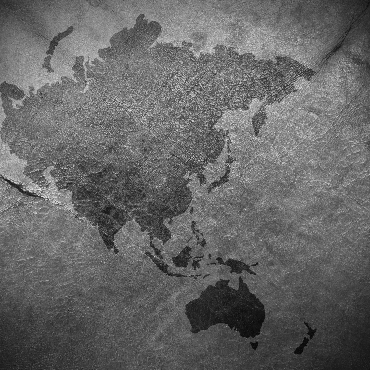WASHINGTON USES HUAWEI PLAYBOOK TO HIT RUSSIA
In 2020, the Trump administration limited Huawei's access to key semiconductor components and severely curtailed the Chinese tech giant's growth. Now, the Biden administration is running a similar play against Russia in response to its aggression in Ukraine. Unlike the Huawei episode, however, the U.S. is securing allied support on the front end, and has thus far gained the backing of Singapore, Japan, and Taiwan. The regulation in question is the Foreign Direct Product Rule, which prevents third parties from selling U.S. hardware or software to a designated end-user – in this case, Russia. The intent is to choke off Russia's supply of critical semiconductors, and the impact could be wide-ranging, hitting oil and gas, aviation, and consumer electronics. Washington announced the sanctions on February 24th, and the Taiwan Semiconductor Manufacturing Company (TSMC) promptly indicated that it would comply. (Foreign Policy; Washington Post, February 25, 2022)
INDIA, UAE ON VERGE OF DOUBLING TRADE
Last month, India inked a trade deal with the United Arab Emirates that will nearly double bilateral commercial exchanges to the tune of $100 billion over the next five years. The agreement covers goods, services, and investment, and is particularly beneficial for India's textile and medical devices sectors, among others. The UAE, for its part, is eyeing its metals, minerals, and petroleum projects for increased exports to India. The deal is just one in a series of trade agreements New Delhi has struck with the United Kingdom, Australia, and others after its decision to forego participation in the Regional Comprehensive Economic Partnership (RCEP). (Nikkei Asia, February 19, 2022)
[EDITORS' NOTE: In issue no. 19 of the Indo-Pacific Monitor, we flagged the possibility of India pursuing trade deals with Middle Eastern countries in light of political complications with Iran and longstanding issues with Pakistan – both of which constrain India's commercial access to Central Asia. This development suggests New Delhi is not only looking for alternative routes to Central Asia, but is possibly exploring alternative markets for its exports.]
ON DEBTS TO CHINA, SRI LANKA LOOKS TO INDIA FOR HELP
Over the past two years, Sri Lanka's debt crisis has deepened severely. While a lack of remittances and tourism from abroad due to the coronavirus pandemic has hit Sri Lanka, the underlying issue is the country's relationship with China and its participation in Beijing's Belt and Road Initiative (BRI). At the end of 2022, about $4 billion in debt will come due, and the Sri Lankan government is bracing for the worst. The country's Trade Minister, Bandula Gunawardena, was blunt: "The government's priority is to maintain reserves to repay our debt but also ensure there are no shortages of goods for citizens."
It turns out, though, that Sri Lanka may have found a lifeline in India. In late January, Sri Lanka accepted loans and brokered subsidiary oil agreements from India to pay for imports and to feed its people. The $500 million credit line with India will also fund fuel purchases. The credit line, coupled with another $1 billion Sri Lanka expects to receive from India for food and medicine, dwarfs similar aid from Pakistan and Australia. (Wall Street Journal, January 18, 2022; Reuters, February 2, 2022)
NEPAL APPROVES U.S. DEVELOPMENT ASSISTANCE, DESPITE CHINA'S WARNINGS
On February 27th, Nepal's parliament approved a $630 million compact with the United States to boost investments in power supply and transportation infrastructure – specifically, hydroelectric power and roads. Washington is funding 80% of the project, and is working with Kathmandu to "facilitate cross-border electricity trade between Nepal and India," according to the Millennium Challenge Corporation (MCC). The purpose is notable, given China's use of hydropower to extract political concessions from Mekong Delta states in the past.
The compact has not escaped China's notice. A spokeswoman from China's Ministry of Foreign Affairs cautioned Nepal against moving forward with the agreement, and several Nepalese politicians have pondered whether approving the deal would land Nepal in the middle of larger tensions between Washington and Beijing, particularly as China pushes its Belt and Road Initiative (BRI) on its neighbors. (Millennium Challenge Corporation, December 29, 2020; Wall Street Journal, February 27, 2022)
JAKARTA LOOKS BEYOND RUSSIAN ARMS TO BALANCE BEIJING
Last month, Indonesia took steps in cooperation with the United States and France to bolster its air force and navy. Under the agreement with Paris, Jakarta will purchase six Rafael fighter jets, soon to be followed by 36 additional fighters. The two countries are also arranging joint production for two submarines for Indonesia. With the United States, meanwhile, Indonesia is on the cusp of purchasing 36 F-15ID fighters. The deals are part of Jakarta's larger effort to overhaul its aging capabilities – many of which are Russian in origin. Washington's "CAATSA" sanctions from 2017 proved complicating to Indonesia and several other nations which had long purchased Russian military equipment, and the current war in Ukraine introduces additional incentives for nations to select partners other than Moscow for military procurement. (Reuters, February 10, 2022; Janes, February 11, 2022)
Want these sent to your inbox?
Subscribe
Indo-Pacific Monitor No. 24
Related Categories:
Economic Sanctions; International Economics and Trade; China; India; Middle East; Russia; South Asia; Southeast Asia

